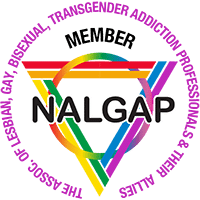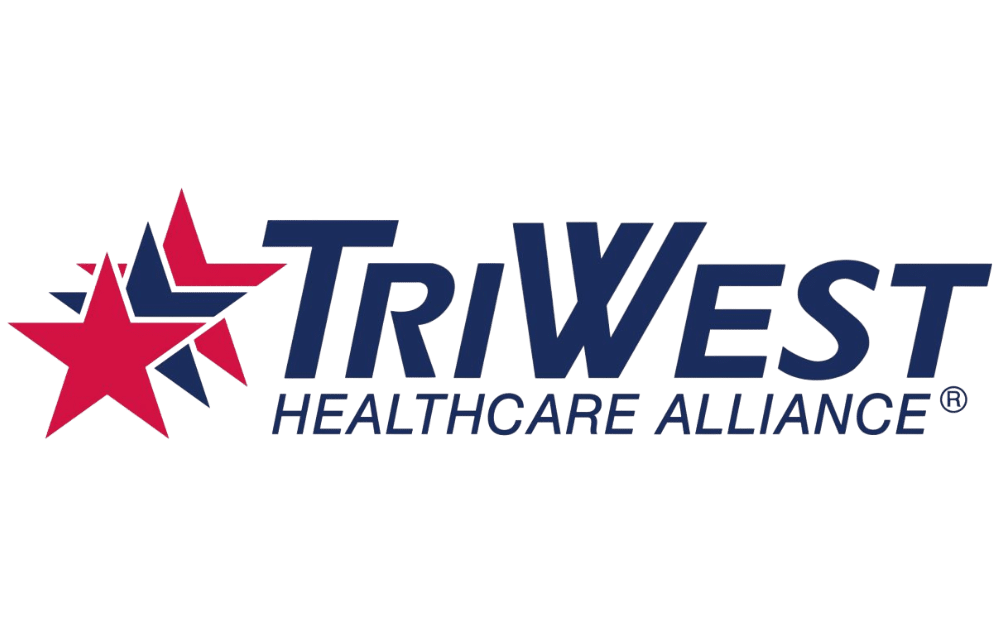Denver rehab
Unique Benefits of Mile High Recovery Center
Mile High Recovery Center, situated in the heart of Denver, offers a comprehensive array of treatment options for those seeking help with addiction. The center’s unique housing-to-treatment pipeline ensures clients have access to continuous, supportive housing, facilitating smoother transitions and long-term recovery. This approach is particularly beneficial for residents who need a stable environment to reinforce their commitment to sobriety.
The center’s team boasts a wealth of experience, with many members having personal recovery journeys themselves. This lived experience enriches the support provided, fostering empathetic understanding and encouragement that is both genuine and effective. The strong leadership and dedicated staff create a nurturing environment essential for positive rehabilitation outcomes.
Evidence-Based Therapies and Innovative Modalities
Cognitive and Dialectical Behavioral Therapies
At the core of Mile High Recovery Center’s successful treatment plans are evidence-based therapies such as Cognitive Behavioral Therapy (CBT) and Dialectical Behavioral Therapy (DBT). These therapies are instrumental in helping clients recognize and alter detrimental patterns of thought, promoting healthier behavioral responses. By focusing on these scientifically grounded approaches, the center offers clients the tools they need to manage addiction-related challenges effectively.
Experiential and Holistic Healing Practices
The center also integrates experiential therapies, adding a unique dimension to traditional treatments. Adventure therapy and equine-assisted therapy, for instance, offer hands-on experiences that promote emotional healing and personal growth. These activities, combined with art and music therapy, provide clients with creative outlets for expression, encouraging introspection and healing in a safe, supportive environment.
Furthermore, the center emphasizes holistic health, incorporating nutrition education into its regimen. This ensures clients are not only treating their addiction but are also on a path to overall wellness, reinforcing the foundations for a healthier lifestyle post-rehabilitation.
Comprehensive Care for Dual-Diagnosis Patients
Mile High Recovery Center excels in providing treatment for individuals grappling with both substance use disorders and mental health conditions. This dual-diagnosis approach is essential for those who face complex, interwoven challenges of addiction and mental illness. By addressing both aspects concurrently, the center ensures a more robust, comprehensive recovery process.
Treatments for co-occurring disorders like anxiety, PTSD, bipolar disorder, and schizoaffective disorders are seamlessly integrated into the addiction recovery plan. This integration helps clients develop strategies to cope with their mental health symptoms, reducing the risk of relapse triggered by unmanaged psychological stress.
Individualized Programs for Diverse Needs
The center tailors its programs to accommodate the diverse needs of its clients. Whether an individual requires inpatient or outpatient care, Mile High Recovery Center provides options that fit their specific situation. This personalized approach is crucial because it acknowledges that each person’s journey to recovery is unique, necessitating customized treatment plans for effective rehabilitation.
Programs such as Partial Hospitalization (PHP) and Intensive Outpatient (IOP) offer flexible yet intensive care for those who need structured support while maintaining life responsibilities. By offering a spectrum of treatment intensities, the center ensures that each client receives the precise level of care required for their particular circumstances.
Strategies for Long-Term Recovery
Long-term recovery is supported by the center’s active alumni community, which plays a vital role in maintaining sobriety after formal treatment concludes. Alumni support groups provide ongoing encouragement, offering a network of peers who understand the challenges of staying sober. This community-based support encourages a sense of belonging, which is essential for sustained recovery.
Coordinated Sober Living Arrangements
In addition to alumni networks, Mile High Recovery Center coordinates sober living arrangements. These environments provide a structured, drug-free setting where individuals can transition back to everyday life. Such arrangements are integral to reinforcing the skills learned during treatment and offering a supportive community to return to when needed.
Specialized Programs for Specific Populations
The center offers specialized programs tailored to specific populations, such as the LGBTQ community and military beneficiaries. These programs recognize the unique challenges and cultural dynamics that can affect recovery and are designed to provide an inclusive, understanding space for all individuals.
By accepting in-network reimbursement from major carriers, Mile High Recovery Center eases the financial burden associated with high-quality addiction treatment, ensuring more individuals can access the care they need without undue stress.
The combination of insurance accessibility and tailored programs makes the center an appealing choice for diverse demographics within the Denver area, demonstrating its commitment to serving a wide range of clients.
Advantages of Integrated Treatment Models
Integrated treatment models at Mile High Recovery Center combine medical management with therapeutic modalities, offering a multi-phase, personalized approach to addiction recovery. This model enhances the effectiveness of treatment by addressing both physical and psychological aspects of addiction in tandem, promoting a comprehensive healing process.
The use of anti-craving medications such as Suboxone and Vivitrol is paired with group work and individual therapy, ensuring clients receive balanced care that combines medication with psychological support. This integration is crucial for minimizing withdrawal symptoms and preventing relapse.
Collaboration and Accreditation Fostering Trust
Mile High Recovery Center’s collaborations with local healthcare providers and insurers streamline care transitions, ensuring that clients receive uninterrupted support from initial intake to post-treatment follow-up. These partnerships enhance the center’s ability to provide cohesive, well-rounded care.
The facility’s accreditation from the Joint Commission and Verification from LegitScript reinforce its commitment to maintaining high treatment standards. These recognitions offer clients peace of mind, ensuring that they are receiving quality care from a reputable institution.
By fostering trust through accreditation and collaboration, Mile High Recovery Center establishes itself as a dependable partner in the pursuit of sobriety within the Denver rehab landscape.
Embracing Community in Denver’s Urban Oasis
Located in Denver’s City Center, Mile High Recovery Center offers the advantages of both urban access and outdoor therapeutic opportunities. Whether participating in community-based activities or enjoying the city’s vibrant cultural scene, clients are encouraged to engage with their surroundings as part of their recovery journey.
The center’s emphasis on community reintegration is evident in its use of the city’s expansive natural landscapes for therapeutic activities, further enriching the recovery process. This connection with nature and community aids in fostering a sense of belonging and personal investment in the recovery journey.
The combination of location, community focus, and innovative treatment programs places Mile High Recovery Center at the forefront of Denver rehab options, providing a holistic and immersive recovery experience.
What are the benefits of the housing-to-treatment pipeline offered by Mile High Recovery Center?
The housing-to-treatment pipeline at Mile High Recovery Center provides an essential bridge between structured treatment and independent living. This approach ensures that clients have access to supportive housing that aids in maintaining sobriety and stability during a challenging transitional period. Imagine you’re stepping out of an intense therapy session; the thought of returning to a stable, sober environment can be incredibly comforting and crucial in preventing relapse. Many clients find that this consistent support helps reinforce their commitment to sobriety, allowing them to gradually adjust to the demands of a sober lifestyle while still having access to professional resources. This strategy effectively reduces the risk of relapse and enhances the likelihood of long-term recovery success.
How does Mile High Recovery Center integrate evidence-based and innovative therapies?
Mile High Recovery Center combines evidence-based treatments like Cognitive Behavioral Therapy (CBT) and Dialectical Behavioral Therapy (DBT) with innovative modalities such as adventure and equine-assisted therapy. This blend creates a holistic treatment program that addresses both mental and physical aspects of addiction. Consider how a person struggling with addiction could benefit from the structured approach of CBT in identifying detrimental thought patterns and, on a different day, experience the grounding and calming effect of equine-assisted therapy. The synergy of these therapy types helps clients engage more comprehensively in their recovery process, offering diverse tools to tackle the complex nature of addiction. It’s not just about stopping substance use but transforming lives entirely through multifaceted healing experiences.
Why is comprehensive care for dual-diagnosis patients important, and how is it implemented at Mile High Recovery Center?
Treating dual-diagnosis patients–those with both substance use disorders and mental health conditions–requires a nuanced approach. Mile High Recovery Center excels in this area by offering integrated treatment plans that simultaneously address both conditions. For example, if a client is dealing with addiction and anxiety, addressing these concurrently helps in managing symptoms more effectively and reduces the likelihood of relapse triggered by unmanaged mental health issues. This dual focus enhances the overall recovery experience by helping patients develop coping strategies for both addiction and mental health challenges concurrently. It’s an approach that acknowledges the complexity of these intersecting issues and provides a more robust foundation for sustainable recovery.
Why are individualized programs crucial in addiction treatment at Mile High Recovery Center?
Individualized programs are essential because every person’s path to recovery is unique. At Mile High Recovery Center, treatment plans are tailored to meet the specific needs of each client, whether through inpatient, outpatient, or partial hospitalization programs. Consider someone who has workplace responsibilities but needs intensive treatment; an Intensive Outpatient Program (IOP) could offer the perfect balance. This personalized approach ensures that clients receive the level of care best suited to their circumstances, thereby enhancing the effectiveness of their rehabilitation journey. Customizing care allows clients to maintain parts of their daily life while receiving the necessary support to overcome addiction.
What strategies does Mile High Recovery Center employ to support long-term recovery?
To foster long-term recovery, Mile High Recovery Center emphasizes strong community support through an active alumni network and coordinated sober living arrangements. Imagine completing a treatment program and stepping into a vibrant alumni community where you can share experiences and gain advice. This continuous connection with peers who understand the challenges of sobriety can prevent feelings of isolation and promote a sustained commitment to recovery. The center also ensures clients transition to sober living environments where they can apply the coping skills learned in treatment. These strategies are designed to support clients as they navigate the complexities of everyday life while maintaining their sobriety goals.
What specialized programs does Mile High Recovery Center offer for specific populations, such as the LGBTQ community and military beneficiaries?
Mile High Recovery Center recognizes the unique challenges faced by different communities and offers tailored programs to meet those needs. For the LGBTQ community, the center provides a welcoming and inclusive environment where individuals can feel safe and understood. Similarly, programs for military beneficiaries through Tricare acknowledge the distinct experiences of service members, focusing on culturally competent care. By doing so, the center ensures that all clients receive respectful and relevant treatment, helping them feel validated and supported in their recovery journey. These specialized programs highlight the center’s commitment to accessibility and inclusivity, making it a viable option for diverse demographics in Denver.
How do integrated treatment models enhance the addiction recovery process at Mile High Recovery Center?
Integrated treatment models at Mile High Recovery Center enhance recovery by addressing both the medical and psychological elements of addiction. By using anti-craving medications such as Suboxone and Vivitrol, along with therapies like CBT and group sessions, the center provides a comprehensive treatment framework. Picture a client receiving medication to manage cravings while simultaneously participating in therapy sessions that address underlying psychological issues. This integrated approach ensures a balanced recovery, minimizing withdrawal symptoms and addressing the root causes of addiction. Combining physical and mental health strategies increases the likelihood of maintaining long-term sobriety.
Why is collaboration and accreditation important for Mile High Recovery Center and its clients?
Collaboration with local healthcare providers and insurers, coupled with accreditation from reputable organizations, establishes trust and ensures quality care at Mile High Recovery Center. These partnerships facilitate seamless transitions between different phases of treatment, offering clients consistent support. Furthermore, accreditation from organizations like the Joint Commission affirms the center’s commitment to high standards of care. This level of trust and continuity is vital for clients who might be apprehensive about entering or transitioning within the treatment process, as it assures them of the credibility and reliability of the services provided. Knowing a treatment center meets rigorous standards can be reassuring for clients and their families, cementing confidence in their choice.
How does Mile High Recovery Center leverage Denver’s community and natural surroundings in its treatment approach?
Situated in Denver’s City Center, Mile High Recovery Center takes full advantage of the city’s vibrant urban culture and expansive natural landscapes to enrich the recovery process. Let’s imagine a client participating in community events and bonding with peers over shared experiences. Engagement with the community and nature not only supports therapeutic endeavors but also encourages clients to feel connected and invested in their recovery journey. This approach fosters a sense of belonging and empowerment, which are critical components of successful rehabilitation. By integrating these community and environmental resources, the center offers a holistic recovery experience that extends beyond traditional therapy rooms. How might engaging with your local community or natural surroundings support your recovery journey?
What are the options for inpatient rehab in Denver?
Denver offers a range of inpatient rehab options, each providing comprehensive care for individuals battling addiction. Facilities such as Denver Springs, Reunion Rehabilitation Hospital, and Valley Hope of Denver offer structured environments where patients can focus solely on their recovery without external distractions. These centers provide around-the-clock medical supervision and therapeutic support, crucial for those needing intensive care as they begin their sobriety journey. The inpatient setting also facilitates a supportive community where individuals can connect with others at similar stages in their recovery, fostering mutual support and understanding.
What unique aspects do different Denver recovery centers offer?
Each recovery center in Denver provides distinct features that cater to various needs. Red Rock Recovery Center offers a personalized treatment approach with a focus on outdoor experiential therapies, such as hiking in the scenic Colorado landscape, which aids in physical and emotional healing. Likewise, CuraWest prioritizes a luxurious detox experience, combining comfort with clinical excellence. Craig Hospital is renowned for its expertise in neurological rehabilitation, offering specialized care for those whose addiction issues intersect with neurological concerns. These centers highlight the diversity of Denver’s treatment landscape, ensuring that individuals can find a facility that aligns with their specific recovery goals and lifestyle preferences.
Resources
- Substance Abuse and Mental Health Services Administration (SAMHSA) – SAMHSA is the leading agency for behavioral health in the United States, providing resources and information on substance abuse and mental health treatment.
- American Psychiatric Association – The American Psychiatric Association offers valuable insights and resources on mental health disorders and psychiatric treatment approaches.
- National Institute on Drug Abuse (NIDA) – NIDA is a government agency that conducts research on drug abuse and addiction, offering evidence-based information on effective treatment strategies.
- National Alliance on Mental Illness (NAMI) – NAMI is a grassroots mental health organization providing advocacy, support, and education for individuals and families affected by mental illness.
- Centers for Disease Control and Prevention (CDC) – The CDC offers comprehensive information on public health, including resources on substance abuse and mental health disorders.
















